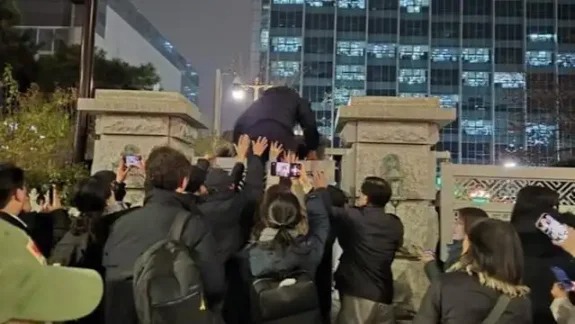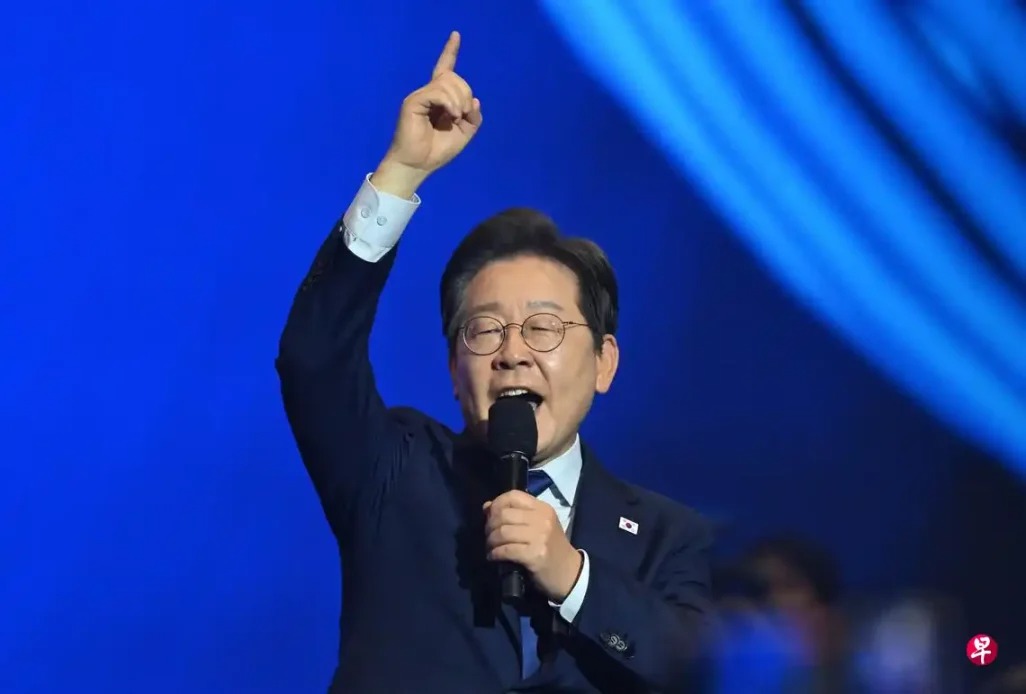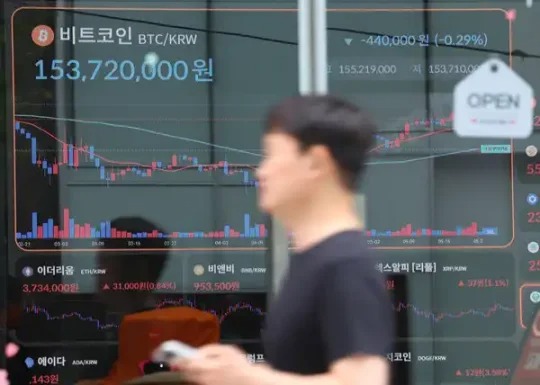Written by: Jaleel Jia Liu, BlockBeats
South Korea, a thriving crypto market, has chosen President Lee Jae-myung, who will promote the Korean won stablecoin and crypto ETF.
As a core member of the Democratic Party, Lee Jae-myung narrowly lost to Yoon Suk-yeol in the 2022 presidential election. At that time, he made cryptocurrency policy a key campaign promise, trying to attract young people and retail investors. However, consecutive election defeats once labeled him as the "perpetual candidate".
Until that day. In December 2024, the Korean political landscape suddenly changed. President Yoon Suk-yeol was quickly impeached under public opinion and parliamentary pressure for attempting to impose martial law, triggering a constitutional crisis. This crisis not only vacated the presidential seat two years early but also broke the existing power balance, unexpectedly creating an opportunity for Lee Jae-myung, a politician who has repeatedly fought despite defeats.

As the power structure collapsed and parliament fell into turmoil, Lee Jae-myung quickly seized the opportunity. He summoned lawmakers to the National Assembly hall, initiated a live broadcast, and climbed over the wall into the parliament under the support of the people.
From that day on, Lee Jae-myung became the more suitable presidential candidate in the hearts of Koreans. "I must let as many citizens as possible understand this situation quickly," he urged in the live broadcast for people to witness the parliament's overturning of martial law.
Finally, in the presidential by-election announced last night, Lee Jae-myung led with 49.2% of the votes, ahead of his opponent Kim Moon-soo (36.8%), successfully elected as the 21st President of South Korea. For his supporters, this was a victory of "winning at all costs", a validation after three election attempts.

For the Korean crypto industry, Lee Jae-myung's victory may have even more far-reaching significance: he is not only a political winner but also one of the most steadfast advocates of crypto policy. His election marks a fundamental institutional shift in digital asset regulation in South Korea.
Lee Jae-myung's Promises to Korean Crypto
Even before taking office, Lee Jae-myung proposed a series of clear digital asset policy claims during his campaign.
He positioned virtual assets as a key component of national financial reform, for the first time incorporating them into a presidential-level promise system. His goal is to reshape the legitimacy and security of the crypto market through top-level institutional design.
Lee Jae-myung's core promises to the "Korean crypto industry" include:
Promoting the legalization of virtual asset spot ETFs;
Guiding the massive Korean National Pension Fund (about $884 billion) to allocate crypto assets;
Constructing a stablecoin system anchored to the Korean won as a strategic tool to prevent capital outflow and strengthen monetary financial sovereignty.
Most notably, he is persistent about the Korean won stablecoin. In a YouTube live broadcast, Lee Jae-myung openly stated: "To prevent national wealth from flowing out, we need to establish a stablecoin market based on the Korean won." This statement not only reflects his keen insight into the international competitive landscape of digital assets but also directly responds to regulators' concerns about the increasing proportion of Tether (USDT) and USD Coin (USDC) in Korean transactions.
According to Bank of Korea data, in the first quarter of 2025 alone, stablecoin trading volume linked to the US dollar has reached 57 trillion won, accounting for more than half of the total stablecoin trading volume.
To achieve these goals, Lee Jae-myung plans to "have the government lead market rectification, reduce transaction fees, and establish a comprehensive regulatory system" and promote the establishment of a dedicated "Digital Asset Regulatory Bureau". His core strategy is to provide a safer trading environment for ordinary investors through official leadership, pushing crypto assets from "speculative tools" to "asset allocation options".
This is not Lee Jae-myung's first time speaking out in digital finance. As early as 2021, he advocated postponing the originally scheduled virtual asset income tax in 2022, emphasizing "regulation first, taxation later". He also proposed raising the taxation threshold from 2.5 million won to 50 million won, in line with stock investment, and allowing loss offset to reduce the burden on retail investors and enhance policy fairness.
Now, this policy roadmap centered on ETFs, stablecoins, and regulatory systems is no longer just a campaign slogan but is gradually transforming into specific proposals with Lee Jae-myung's governance. For the Korean crypto industry, this may mean entering a completely new development stage - moving from the financial system's edge to its institutional core.
Once Luna Crashes, Afraid for Ten Years?
However, Lee Jae-myung's plan to vigorously promote the Korean won stablecoin is not without controversy.
Shortly after he proposed building a domestic Korean won stablecoin market, the New Reform Party's presidential candidate Lee Jun-seok launched a fierce attack on social media. He wrote: "Candidate Lee Jae-myung's economic views are always dangerous and experimental. He recklessly throws out untested ideas, clearly not understanding the market and merely repeating empty slogans."
Lee Jun-seok specifically mentioned the globally shocking Terra/Luna incident - a "stablecoin" project claiming to be pegged to the Korean won but maintaining its price through algorithms. The project's collapse left hundreds of thousands of investors with nothing, casting a huge shadow over the term "stablecoin" in the Korean public's mind and becoming the main breakthrough point for the conservative camp to attack Lee Jae-myung's policy. Lee Jun-seok accused Lee Jae-myung of "treading the same path" and "endorsing an illusory structure with national credit".
In response, the Democratic Party quickly counterattacked. Former lawmaker Kim Byung-wook publicly stated: "Completely negating the Korean won stablecoin based on the Terra and Luna incident is clearly against international regulatory trends." He explained: "Major regulatory bodies in the US, Europe, and Japan have clearly excluded 'algorithmic stablecoins' (like Terra/Luna) from compliant stablecoins, believing their volatility is too high to be a reliable store of value."
Kim Byung-wook emphasized that a truly compliant stablecoin should adopt a "1:1 full collateralization" model, using cash or short-term government bonds as secure assets to fully guarantee, real-time disclose reserve status, and bear immediate redemption obligations. He pointed out that current mainstream Tether (USDT) belongs to this category. In contrast, Lee Jun-seok's blanket denial of all stablecoins exposes his deviation in understanding the global crypto regulatory framework.
Another Democratic Party lawmaker Min Byung-duk's response was even more sarcastic: "It would be ridiculous to eliminate the entire printing technique just because one copier is broken." He compared stablecoins to a stage of financial technology development, emphasizing that their development should be regulated through institutionalization rather than being completely banned due to individual failure cases.
Korean Crypto Ecosystem Enters a New "Nationalization" Cycle
Against the backdrop of Lee Jae-myung's victory, the Korean crypto industry is quietly entering a new policy-driven cycle.
Unlike the previous period of wild growth and platform-by-platform operations, today's market is more like a game being reshuffled around "institutional dividends".
South Korea has long been one of the most active crypto markets globally. According to the Korea Financial Intelligence Unit (FIU), by the end of 2024, crypto investors with real-name authentication had reached 9.7 million, a year-on-year growth of 25%. Notably, investors aged 30 to 50 have grown significantly, with those over 40 accounting for about 78% of high-net-worth groups holding over 100 million won in crypto assets. This structural change indicates that crypto assets are gradually moving beyond the stereotype of a "young people's speculative tool" and becoming part of asset allocation for middle and upper-class groups.

At the same time, the Korean crypto trading market experienced an explosive growth in 2025, with total trading market value breaking through 1 trillion Korean won, even temporarily exceeding the trading volume of the domestic stock market. This growth was stimulated by both the expected domestic policy relaxation and the global political and economic situation. Especially under the background of Trump's re-election as the US president triggering risk-averse sentiment towards US dollar assets, local Korean investors massively flowed into the virtual asset market priced in Korean won, forming a regional capital backflow trend.
Facing the market's activity, regulation is gradually following up. The government has announced postponing the originally planned virtual asset transfer income tax from 2025 to 2027, citing reasons such as "immature technical implementation" and "incomplete investor protection system". This move effectively calmed market sentiment and bought buffer time for Lee Jae-myung's new regulatory framework.
However, postponing taxation does not mean relaxing regulation. The Virtual Asset User Protection Act (VAUPA) introduced in 2024 has officially taken effect, proposing stricter compliance requirements for trading platforms, including asset custody mechanisms, insider trading prevention, user asset segregation management, and other core contents. The government's intention is clear: through more sound institutional design, prevent a trust crisis similar to Terra/Luna and lay the foundation for the "normalization" of the crypto market.
This series of policy signals conveys a clear message: the Korean government is committed to incorporating crypto assets into the national financial governance system, promoting the market's transformation from laissez-faire to "nationalization". This is precisely the vision outlined by Lee Jae-myung - a digital asset market guided by the government, guaranteed by rules, and driven by innovation.
In the future, Korea's crypto policy may not be smooth sailing. Issues such as stablecoin controversies, tax implementation, and international regulatory coordination still exist. But one thing is certain: during Lee Jae-myung's term, cryptocurrency is no longer a gray area to be avoided, but a national strategy written into presidential promises. Korea's crypto industry has finally arrived at an institutionalized starting point.







